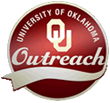Dual Language Learners in the Early Years: Getting Ready to Succeed in School
This National Clearinghouse on English Language Acquisition report explores the issues associated with school readiness among young dual language learners.
Easing the Transition from Pre K to Kindergarten
This strategy brief of the National Center for Family and Community Connection with Schools explores what schools and families can do to ease an early learner's transition from Pre K to Kindergarten.
Enhancing the Transition to Kindergarten Linking Families, Children, and Schools
This manual, developed by the National Center for Early Development & Learning Kindergarten Transition Project at the University of Virginia, describes an approach to facilitating the transition to Kindergarten. As noted in its introduction, it "focuses on forming a network of social connections that support children and families during the transition to school. These connections include interactions between children and teachers, children and peers, parents and teachers, as well as preschool teachers and kindergarten teachers."
Successful Transition to Kindergarten: The Role of Teachers and Parents
This article from the Early Childhood News describes the role of teachers and parents in early learners' transition to Kindergarten.
Terrific Transitions
This link to the Terrific Transitions website provides information on the early learners' transition from preschool to Kindergarten. As noted at the website, "it is a collaborative effort of the SERVE Regional Educational Laboratory and the National Head Start Association. Our goal is to provide a wide variety of transition information and resources for families, professionals, and community partnerships to use as they address children's transitions into kindergarten."
The Roles and Responsibility of an Early Childhood Teacher
This article from the Childcare Education Institute's August 2008 newsletter discussed the roles and responsibilities of an early childhood teacher.
The Vital Role of Early Childhood Teachers in Children's Literacy and Language Development
This brief summarizes the finding from the Foundations of Literacy Study, University of Nevada, Reno. The brief identifies the role early childhood teachers have in early literacy and language development. Though intended for Nevada educators, the findings may be useful to educators of early learners in other states.
